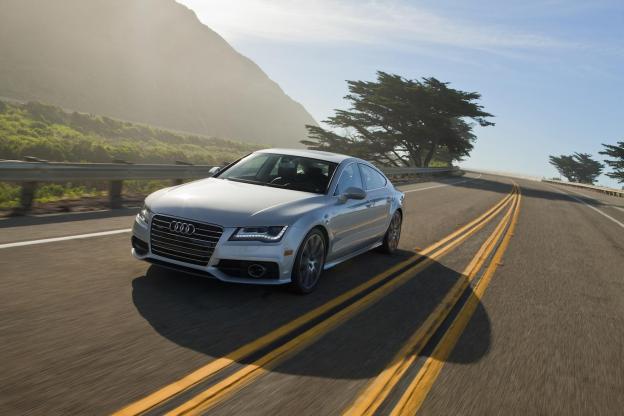
After Mercedes-Benz pushed its hydrogen fuel-cell-powered model off to at least 2017, we figured hydrogen power was still a ways off.
Since then, however, a lot of hydrogen momentum has been building. Aston Martin recently raced a hydrogen car on the Nurburgring, Honda joined the Department of Energy’s H2USA campaign, and now Audi has announced its latest foray into the hydrogen world with the A7.
Reported to join the ranks of the e–tron series of alternate powertrain vehicles, the hydrogen-powered A7 will go into testing this August, according to Autocar. Audi has denoted its electric powertrain vehicles with the “e-tron” suffix and “g-tron” for its synthetic natural gas-powered models.
This isn’t a breakthrough for Audi, though, as it has tested hydrogen power before with its 2009 Q5 HFC model. The Q5 HFC used a hydrogen fuel cell to create electricity, which in turn powered two onboard electric motors, which then propelled the vehicle forward. There’s no word yet on how exactly the A7 is powered but the system is likely similar. Hydrogen is an attractive fuel because it can be made from many renewable sources, is abundant, clean, safe and the byproduct from a hydrogen fuel cell is water.
What we like about the hydrogen A7 is its size and luxury. The aforementioned Mercedes was based upon its B-Class, which is rather small. Hydrogen, we figure, is more likely to be adopted by the wealthy, as the technology is still rather expensive. Asking buyers to pay a lot for a cheap car with expensive bits fitted to it is silly. Instead, ask them to pay a lot for a really nice car with expensive bits.
As soon as we learn more of the A7 hydrogen, we’ll be sure to bring it to you so check back soon.


